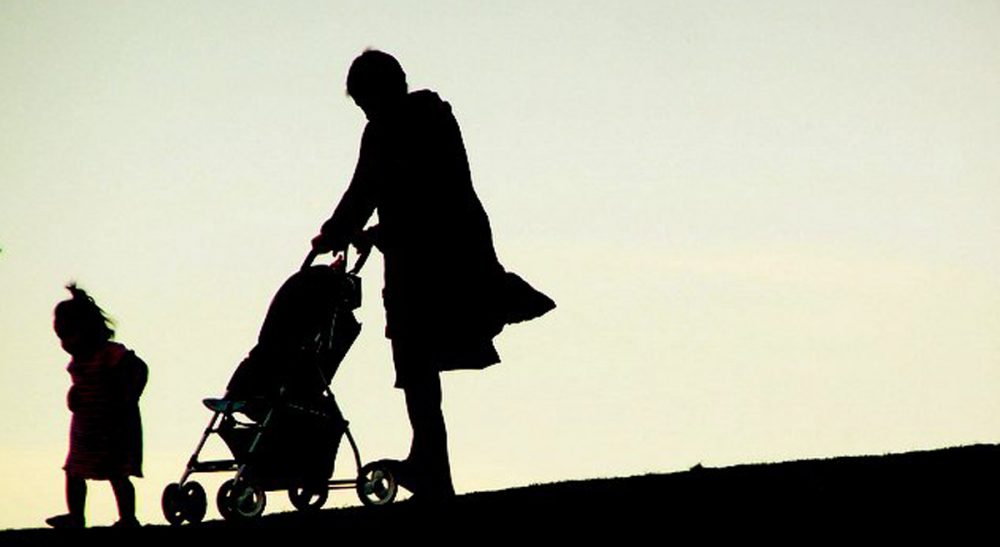Advertisement
Protecting Our Most Vulnerable Children And Families

What is the state of child welfare in the state of Massachusetts? The discovery of the body of 5-year-old Jeremiah Oliver in a piece of luggage along a highway in Sterling on April 18 has sparked intense debate about how to fix the state’s Department of Children and Families, the organization that exists to protect our most vulnerable children. Oliver, whose mother and boyfriend were charged last December in connection with his disappearance, was last seen by a DCF worker on May 20, 2013. The boy’s short, tragic life has renewed scrutiny on funding for child protection and the overall condition of our child welfare system. We’ve been here before, and what we have learned is that overhauling DCF won’t be enough, because these problems start long before DCF gets involved.
I believe in prevention, which means investing in preventative approaches instead of spending on remediation after a crisis has happened. No amount of after-the-fact investment will bring back Jeremiah or fix his broken family. This approach also means keeping young men out of prison and helping families stay in their homes, rather than spending more on shelters once they are homeless. Prevention it is also significantly less burdensome to public resources than the back-end actions we take when we don’t invest first.
We’ve been here before, and what we have learned is that overhauling DCF won’t be enough, because these problems start long before DCF gets involved.
Prevention should be a rallying cry for Massachusetts.
Consider the little girl who spends the night on the floor of a restroom because her mother — as this state requires — has to prove that she and her child have spent at least one night in a place unfit for human habitation before they can qualify for homeless benefits.
In the prevention world, that girl never became homeless, because her mother qualified for, and received, subsidized affordable housing and a childcare subsidy, neither of which ran out, which allowed her to accumulate some savings without penalty in order to become self-sufficient.
According to the Massachusetts Coalition for the Homeless, as of mid-May of this year, Massachusetts had approximately 4,600 homeless families and pregnant women. The state was paying nightly to shelter 1,889 of those families in motels, because of insufficient shelter space. Imagine your kids trying to do their homework in a small hotel room, or your teenagers trying to get privacy to dress or bathe, or your own efforts to figure out how to prepare and serve a nutritious, affordable meal without a kitchen.
Assume, for a moment, that the state rents all of those motel rooms at $25 per family, per night. That’s just over $47,000 per night. The state has been housing roughly 2,000 families in motels nightly for more than five years. Meanwhile, as of January 2011, the waitlist in the commonwealth for subsidized Section 8 housing was 103,226 families long.
Average rent for a Boston-area, unsubsidized, two-bedroom apartment runs to $1,350 to $1,450 per month. A mother earning minimum wage needs to work 130 hours per week to afford such an apartment, or she has to earn at least $26 per hour. Massachusetts’s state minimum wage is currently $8.00. It will top out at $11.00 in 2017.
Beyond homelessness, food insecurity affects 35.4 percent of families in the U.S. that are headed by single mothers, according to Project Bread. In Massachusetts, 17 percent of our children are going to bed and waking up hungry. When I ran Catholic Charities, we fed children in our early education and care programs the amount of nutrition required for the whole day, because we knew that for some of them, the next meal would not come until tomorrow.
When will we learn? We can pay up front, or we can pay later. Either way, we pay, so why not invest in the option that stands the chance of providing the best outcomes for our children?
While federal SNAP and WIC programs drive down food insecurity and improve child health and well-being, they don’t go far enough. According to a study in the New England Journal of Public Policy, as of 2008, SNAP benefits fell short by $2,520 per family, per year, for Massachusetts families trying to buy even the minimal level of nutrition. Yet, in 2010, hunger-related issues cost the U.S. health care system $130 billion.
While much of this argument is financial, the human outcomes are the most important — and the point. Childhood vulnerability affects learning, long-term mental and physical health, life expectancy, ability to contribute to the community, overall happiness…the list goes on. We can measure the money, but the impact is on all of our children's hope and belief in their futures.
When will we learn? We can pay up front, or we can pay later. Either way, we pay, so why not invest in the option that stands the chance of providing the best outcomes for our children?
Prevention is what states do when they are serious about protecting their children and families. Massachusetts needs to be serious now.
Related:
